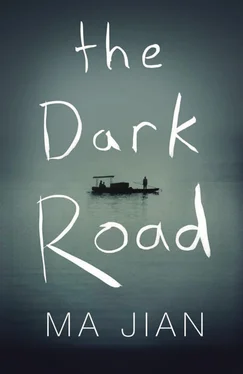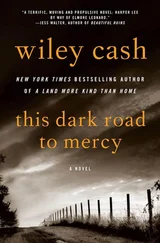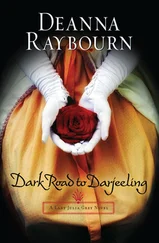Through the side window she sees a troupe of dragon dancers appear at the end of the lane. Processions are a common sight in Heaven Township, not only on Workers’ Day or National Day, but before weddings or the openings of new businesses. Behind the dragon, four men are holding aloft a statue of the Dark Emperor, the black-bearded Taoist deity. Meili visited a Taoist temple with Tang, and prayed to the Dark Emperor to protect the baby in her womb. When she told Tang that she’s pregnant and that the baby refuses to come out, he said he’d take her to a temple in Foshan where she can pray to a huge statue of the Golden Flower Mother, the goddess of fertility and childbirth. He said that all the Golden Flower Mother statues in the temples in Heaven Township are replicas of the one in Foshan. Meili sees the procession stop at the intersection beneath a ragged red banner that says THE IMPORT OF ELECTRONIC WASTE IS ILLEGAL, and a young couple step out from the crowd to perform the ‘clam dance’. The man dressed as the fisherman has a wicker basket tied to his waist and is swaying his hips and clapping his hands in the air. The woman playing the clam fairy is moving her arms, opening and closing the shells attached to her back. When the fisherman reaches out to catch her, she snaps her shells shut, trapping his hands. He keeps trying, and she keeps snapping, but each time they touch, she grows fonder of him and tightens her grip, until by the end he can’t prise his hands free. Meili thinks of the video clip Tang downloaded from a foreign website of a woman being penetrated by two men. She turned away as soon as he showed it to her, but the images have stuck in her mind. Whenever she passes a marital-aids shop now, she casts a brief glance at the products in the window. She has started to wear prettier clothes, and has had her hair cut in a fashionable shoulder-length bob.
Although Meili has kept Tang at arm’s length, he is still besotted with her, and the knowledge that she’s pregnant hasn’t put him off. He even lent her ten thousand yuan to settle the unpaid bills for her mother’s operation. She doesn’t know when she’ll be able to repay him. She makes three thousand yuan a month from her shop. But the cyst that was removed during her mother’s operation was found to be cancerous, and if the disease returns, there will be endless medical bills to pay. Her father and brother have exhausted their savings and have sold the pig they were hoping to eat at Spring Festival. She can imagine the wretched scene at her parents’ house now, with no money to heat the brick bed, or buy New Year posters or her mother’s favourite five-spiced sunflower seeds. Tang has become her protector and benefactor. She’s grateful for his help, but is still careful not to cross any lines. She suspects her emotions are blunted. Kongzi still burrows his way inside her every night, but as soon as he’s finished, she washes all traces of him from her body and returns to how she was. She knows she won’t leave him. He assured her that he never slept with a prostitute, and having no proof, she’s given him the benefit of the doubt. As long as both sides remain faithful, she believes that marriage should last for ever. She knows this is a stupid belief. It seems as childish to her as the infant spirit who’s now smiling inanely at the toddler playing with a bamboo snake in the doorway. But at the same time, she is aware of deeper longings. She wants to be as independent and confident as Suya, as enterprising as Tang. She knows that a simple peasant woman like her has no right to an independent existence, but she understands that money can widen one’s choices in life, so is determined to earn as much as she can. Without money, no marriage or family is secure. She feels that, for years, her true self has been lying buried in the depths with Happiness, but that since meeting Tang, it has begun to rise to the surface again. She wants to dismantle the Meili that has been damaged by men and the state, and reassemble it, like a refurbished computer that may not be as sophisticated as the latest model, but is at least stronger than it was before. She will struggle on and, as Suya advised, use her past suffering as an impetus to achieve happiness.
After the procession has passed, Kongzi phones to say that his sister and her Pakistani husband have had a son. ‘They’ve taken their little black baby to Kong Village to spend Spring Festival with my mother. What a loss of face for the Kong clan!’
‘Oh, you have such a feudal mentality!’ Meili replies. ‘Who cares what colour the baby is? The black dolls in my shop sell just as well as the white ones. And besides, the Kong family could do with some new blood. After two thousand years, they still haven’t produced an offspring of Confucius’s calibre.’
‘We’ll talk when we get back,’ Kongzi says, slamming the phone down. Since Meili told him that her mother has been forcefully fitted with an IUD, he becomes short-tempered whenever babies or childbirth are mentioned. Meili is also upset that both their mothers have had IUDs shoved inside them as a result of their quest for another child, so she puts up with his outbursts. She knows the importance Kongzi places on his responsibilities as a son to his mother. Whenever they made dumplings at home, he’d always serve his mother a bowl first. Now that his brother has moved back to the village following the death of their father, she knows Kongzi is racked with guilt that he’s not there too, looking after her.
A young man suddenly storms into the shop and says, ‘We’re from the Bureau of Industry and Commerce. Open all the bags of milk powder in that crate!’ He looks barely out of high school. There are four officers behind him wearing hats emblazoned with gold badges. A large truck is parked outside.
Meili notices that one of the officers is a woman who visited the shop last week, and quickly slips a one-hundred-yuan note into her palm.
‘I can’t take it,’ the woman whispers, glancing behind her. ‘Someone’s reported you, and we’ve been told to search your stock and confiscate any counterfeit goods.’
‘This brand’s definitely fake,’ the young man says, pulling a bag from the crate. ‘There was a big report about it last week: it contains zero protein. And these ones? Let’s see: “Milk Powder for Primary School Children”, “Calcium-Enriched Milk Formula” — yes, they’re fake too.’ His eyes flit between the list in his hand and the bags he pulls from the crate.
‘No, that brand’s not fake,’ Meili protests. ‘The government awarded it a gold prize last year. I research my products very carefully, I assure you.’
‘Drag the crates outside,’ says a middle-aged officer standing in the doorway.
‘I bought them from a legitimate wholesale company,’ Meili says. ‘How was I to know that they’re fake?’ The truth is, she is fully aware that everything in her shop is counterfeit. If she bought genuine products, her costs would quadruple and she’d make no profit.
‘If you had a child of your own, you’d never dream of feeding it fake formula,’ the young man says. ‘They provide no nourishment at all.’
‘I do have a child, and if I could afford it, I certainly would give her this. The women who buy my formula are migrant workers, many of whom have several children, so they get through a lot of it, but not one of them has ever come back to complain.’
‘Real formula is a creamy colour, but look, this stuff is white,’ the young man says, opening a bag and pouring the powder onto his hand. ‘This is just ground rice and instant chrysanthemum tea powder, with some melamine added to ensure it passes the protein tests. Melamine — that’s the plastic that kitchen cupboards are made of. If a baby were to drink this powder, it would develop kidney stones and die.’
Читать дальше












